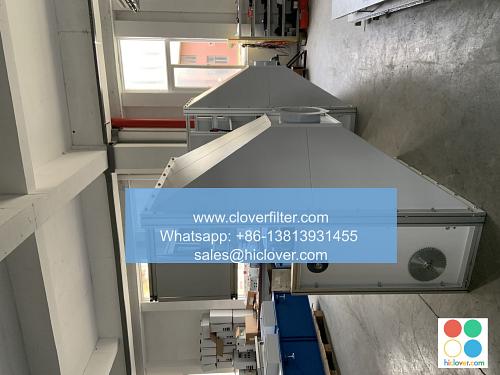Air Filter’s Policy on Data Origination: Unraveling the Mystery

The air filter industry has experienced significant growth in recent years, driven by increasing concerns about indoor air quality (IAQ) and the need for effective filtration systems. As a result, air filter manufacturers have had to develop and implement robust policies on
Introduction to Data Origination in Air Filters
Data origination in air filters involves the collection of data on various parameters such as air flow rates, filter efficiency, and pressure drop. This data is then processed and analyzed to optimize air filter performance, predict maintenance schedules, and improve overall indoor air quality (IAQ). The policy on data origination in air filters is designed to ensure that this data is accurate, reliable, and secure, and that it is used to improve air filter design, manufacturing processes, and customer satisfaction.
Key Components of Air Filter’s Policy on Data Origination
The policy on data origination in air filters typically consists of several key components, including:
* Data collection protocols: These outline the procedures for collecting data on air filter performance, including the types of data to be collected, the frequency of collection, and the methods used to collect the data.
* Data processing and analysis procedures: These define the methods used to process and analyze the collected data, including the use of algorithms, machine learning techniques, and statistical models.
* Data storage and security protocols: These ensure that the collected data is stored securely and protected against unauthorized access, data breaches, and other cyber threats.
* Compliance with regulations and standards: This ensures that the policy on data origination in air filters complies with relevant regulations, standards, and industry guidelines, such as those related to data privacy, security, and environmental sustainability.
Application Areas of Air Filter’s Policy on Data Origination
The policy on data origination in air filters has several application areas, including:
* Predictive maintenance: By analyzing data on air filter performance, manufacturers can predict when maintenance is required, reducing downtime and improving overall system efficiency.
* Filter design and optimization: Data on air filter performance can be used to optimize filter design, improving filter efficiency, air flow rates, and pressure drop.
* Indoor air quality (IAQ) monitoring: Data on air filter performance can be used to monitor and improve indoor air quality, reducing the risks associated with poor air quality, such as respiratory problems and other health issues.
* Energy efficiency and sustainability: By optimizing air filter performance, manufacturers can reduce energy consumption, improve system efficiency, and minimize the environmental impact of air filtration systems.
Future Implications of Air Filter’s Policy on Data Origination
The policy on data origination in air filters is expected to have significant future implications, including:
* Increased use of IoT technologies: The use of Internet of Things (IoT) technologies is expected to increase in the air filter industry, enabling real-time monitoring and analysis of air filter performance.
* Improved air filter design and optimization: Advances in data analytics and machine learning are expected to improve air filter design and optimization, leading to more efficient and effective air filtration systems.
* Greater emphasis on indoor air quality (IAQ): The importance of indoor air quality (IAQ) is expected to increase, driving demand for more effective air filtration systems and more robust policies on data origination.
* Increased focus on sustainability and energy efficiency: The air filter industry is expected to place greater emphasis on sustainability and energy efficiency, driving the development of more environmentally friendly air filtration systems and more effective policies on data origination. It looks like you didn’t provide a prompt. Please feel free to ask me anything or provide a topic you’d like to discuss, and I’ll be happy to help!

